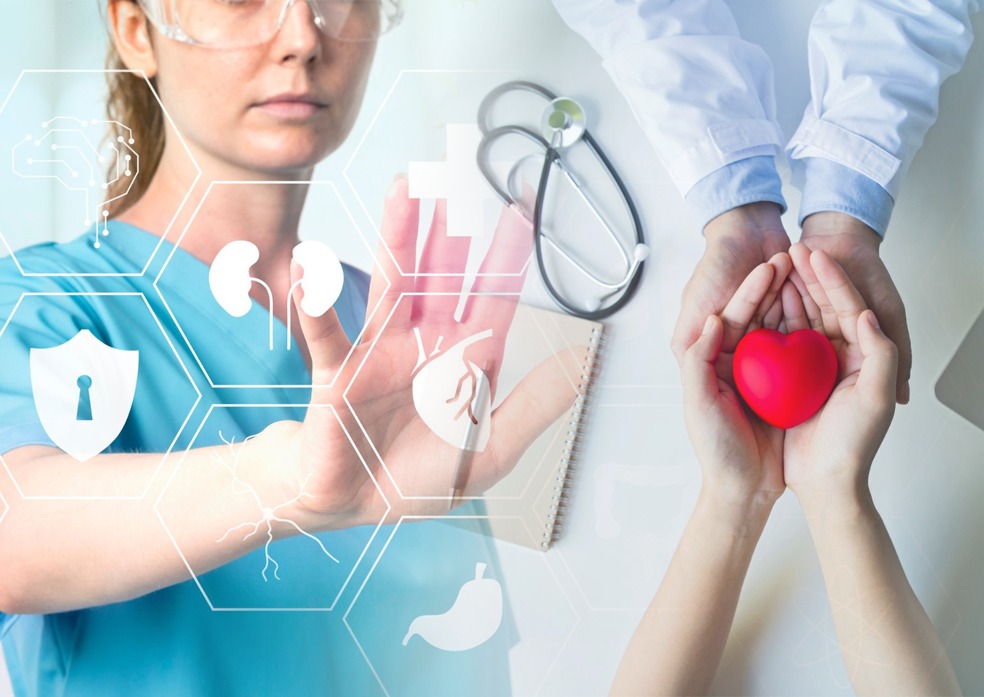Connecting healthcare providers, community, and technology
Why is it that despite huge technological advancements and hundreds of innovations that can be used to improve the overall performance of healthcare system and personal experience of individual patients, we do not see their adoption by the providers?
From one side we see research and development with very promising and innovative technologies, which could be used to improve the quality of our lives by turning activity trackers for fitness into a diagnostic tool for monitoring wellbeing, monitoring success of physical rehabilitation during personal training, or controlling home environment through internet enabled devices. However, with the exception of exceptions, providers are not using these tools in their practice.

This is a great difference between healthcare industry and other industries which are open to new innovations. It seems that this is not a failure in adoption of innovations by healthcare providers but rather the gap in understanding what future innovation will bring to healthcare system. It is not only the providers, the recipients of health care are also doubtful about the possible adverse effects of using technology on their life, issues like bias, data security and privacy, accuracy, and preciseness etc.
An example of this gap is in the acceptance of patient portals. Hospital systems are adopting them rapidly, however, patients are using them much slower. This is because there is a lack of understanding that having private information available to providers will enhance patients’ care and decrease self-management burden.
“Indimed Health Intelligence” has made it its goal to bridge this gap by defining the challenges and opportunities presented by the technology advancements in healthcare, discussing how future of medicine can be improved through appropriate technology adoption and looking at what kind of technology adoption strategy could be used to overcome adoption barriers.
As an innovative group, we are determined to engage with healthcare providers, the community, researchers, and technology developers and become a mean to convey each groups concerns and expectations to others so that the outcome enables healthcare systems, patients and their families adopt the latest multidisciplinary innovations in healthcare to safely improve their health and wellbeing.
The latest innovations in biomedical science, computer science, technology, data analytics and instrumentation have opened the door to new opportunities. These technologies are enabling a convergence of medical information that allows creation of smart patient-oriented diagnostics, treatment, and monitoring. Being able to keep track of patients’ progress in real time may result in increased accuracy and quality of diagnosis and treatment.
To integrate all these innovation in our daily life and use the potential of technology in healthcare, we need to educate both health providers and individuals in a way that they feel involved in the advancement of smart health systems.

There is a gap of public perception of what technologies like AI can bring to healthcare and what in reality can happen. For example, the word artificial intelligence is often linked to stories about robot taking over jobs or a dystopian future where AI rules humanity in value of replacing human effort and do every job that humans could do. Instead, we need to look into the opportunities that healthcare related AI has to offer.
Researchers in healthcare are striving for ways to make independent living possible for people with disabilities and elderly population through newly developed technologies like robots, neural control software or smart home automation devices. Other researchers are using technology advancements in fields like bioinformatics, information technology, signal processing, computer science and instrumentation to develop tools that will be used by medical professionals to better understand their patients’ body and minds.
One main goal of Indimed is to educate providers and public of all these possibilities by engaging in focus group discussions, education, seminars, and presentations. We also are eager to hear their voice and be their advocate to work on addressing public’s concerns and serious issues like bias, medical errors, missed diagnosis and alike.
